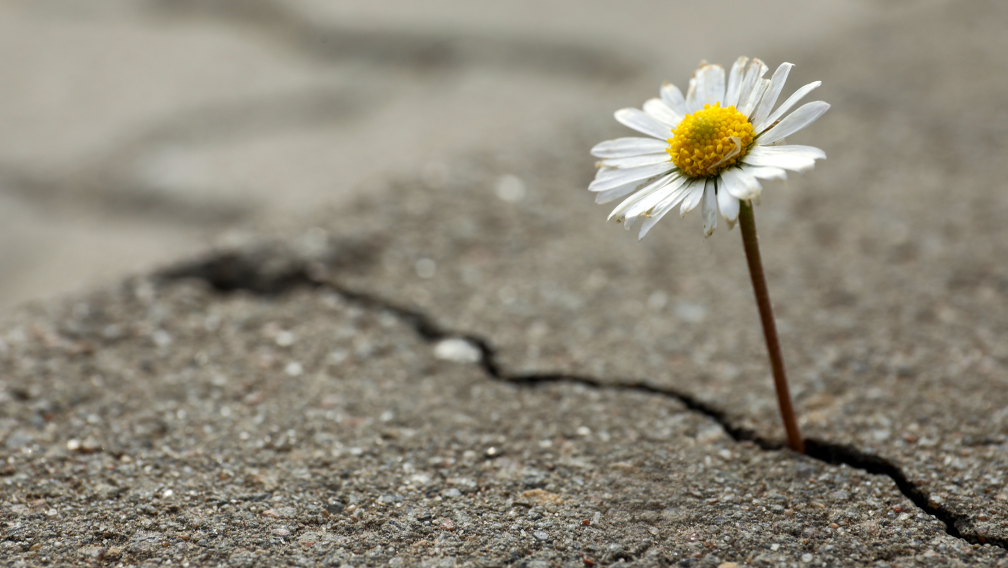The Holy Defiance of Fear

“See, the home of God is among mortals. He will dwell with them as their God; they will be his peoples, and God himself will be with them; he will wipe every tear from their eyes. Death will be no more; mourning and crying and pain will be no more, for the first things have passed away.” — Revelation 21:3–4
Taken from the Psalms and the Book of Revelation, our readings are appropriate for All Saints’ Day, one of the principal feast days of The Episcopal Church, when we remember those who have departed, the beloved family members and friends who have gone before us to be in God’s abiding presence. We also celebrate the rite of baptism, welcoming new congregants into the family of faith. In doing so, we uphold the deep spiritual truth that death does not have the last word; rebirth in God is possible. Here, at the intersection of life and death, we begin to witness the eternal.
But these readings are also relevant to our particular political moment. The word apocalypse comes from the Greek word apokálupsis, which essentially means an uncovering. And while the Book of Revelation does contain some harrowing symbolism — meant to evoke what was happening in the Roman Empire when it was written — it also presents an uncovering of a future that includes “a new heaven and new earth.”
God, who has seen all things, comes to live among us in harmony. In this vision, we are promised that every tear will be wiped away, that “mourning and crying and pain will be no more,” and that even death will be forever destroyed. This is an apocalypse of peace, an unveiling of love.
Such a promise might seem hard to believe in these times, when our world is more polarized than ever. So many live lives of powerlessness and poverty, swept up in conflicts and systemic injustices that appear impossible to control. With an election looming, it can feel as if fear of the future might hold us captive. But as our Rector, the Rev. Phil Jackson, recently noted in a letter to our community:
“As followers of Jesus, we know the antidote to division — and, even deeper, fear — is not being on the right side of an argument. It’s not having the most information or influence, or even winning an election. The only thing that drives out fear is the love of God in Christ. This love is eternal and transcends the political divides of our times.”
When we love one another despite our differences, and when we seek to make friends of enemies, we make a powerful statement: We are willing to participate in God’s future.”
When we love one another despite our differences, and when we seek to make friends of enemies, we make a powerful statement: We are willing to participate in God’s future. As the Psalmist says, “the earth is the Lord’s and all that is in it.”
Trusting that God holds all things is not naïve. It does not mean that bad things will not happen. Rather keeping the faith in trying times involves a holy defiance of fear — a belief that, despite contrary evidence, our future is part of a larger story.
An unveiling always means there will be change. But as we grow in faith, we experience the truth that, as The Book of Common Prayer so beautifully says, that “life is changed, not ended.” God’s story, and our part in it, continues to be uncovered. Of this we can be sure: A time is coming when God’s everlasting joy will not only infuse our hearts, but also our world.
Read all of Sunday’s scriptures
Step Into the Story
Here are some ways to think about times of deep change:
Music
Tony Award-winner Audra MacDonald sings “How Glory Goes,” composer Adam Guettel’s magnificent meditation on what heaven — the realm of God’s new heaven and earth — might be like.
Social Justice
The Rt. Rev. Michael Curry on following God’s way of love through divisions, upheaval, and uncertainty: “Hope doesn't just accept the way things are. It dares to . . . believe that something can be different, and then works to make that happen.”
Visual Art
Christians believe in a vision where all come to the table of God and are fed, where there is abundance for everyone and no one is in need. The story of this abundance is echoed in the Eucharist, the coming together of the church at the communion table each Sunday. In this beautiful study for a mural called “The Three Communions (The Last Supper, Morning After the Resurrection, Banquet in Heaven),” American artist Violet Oakley imagines the world to come.
Poetry
English poet Stevie Smith considers “The Heavenly City”:
At night I fly over the housetops,
And stand on the bright moony beams;
Gold are all heaven’s rivers,
And silver her streams.
Theology
Writer and seminarian Debie Thomas reflects on an active kind of hope: “The hope I’ve arrived at now simply compels me to choose the good, the beautiful, the loving, and the just on a daily, minute-by-minute basis — regardless of the results . . . Who knows, in the cosmic scheme of things, how our tiny acts of resilience, kindness, reconciliation, and reverence will ricochet across the years or generations? Who knows what guises resurrection might yet take?”
Summerlee Staten is the executive director for Faith Formation and Education at Trinity Church.





